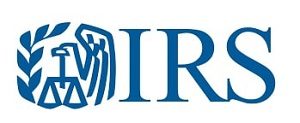Annual 2018 IRS Whistleblower Program Report

Tax whistleblowers and those who believe that no one should be able to lie, cheat, or buy their way out of paying their tax bills got some good news in the IRS Whistleblower Office’s report last month on the 2018 fiscal year. Notably, the IRS issued 217 whistleblower awards totaling over $312 million, a nearly tenfold increase over the prior year. That’s an enormous shot in the arm for what should be a highly effective program but has thus far failed to reach its potential.
The IRS program has an incredible amount of promise. Tax avoidance is particularly hard to ferret out, but knowledgeable insiders can point the authorities directly to the most egregious examples. Yet those individuals take on enormous risks to do so: they risk their careers and livelihoods by potentially becoming known as whistleblowers. That’s why a well-functioning whistleblower program is so critical: it guarantees that whistleblowers tips are heard, reviewed, and acted upon, and it provides rewards to help insure whistleblowers against the risks of speaking the truth.
Although the IRS program has had some big wins, like bringing in the IRS whistleblower who upended the Swiss banking industry, it has always struggled to reach its stride. In particular, the program has been criticized for an opaque process, long delays in its award determinations, and minimal payouts that it could point to as proof it was working. It may be that last year marks the turning point in at least that last category.
In addition to the increase in award totals, the average percentage amount of award given, which is discretionary to the agency, increased to 21.7%, up from the 16-17% averages of the prior two years. That’s an equally critical number, since it suggests the IRS is starting to recognize the invaluable service that whistleblowers provide – and is starting to reward them for it. That will pay dividends for tax enforcement as it encourages future whistleblowers to come forward.
Despite the banner year, though, many critiques still ring true. The program is still opaque, and its average time to award determination actually increased, to a shocking nine years. Over half the award amounts were attributable to a statutory change that now requires awards to be paid on criminal tax collections, not just civil. Ironically, that change, which resulted in the big payouts that the IRS is rightly being lauded for, was necessitated by the IRS’s own refusal to provide awards based on criminal collections, which had disincentivized whistleblowers with information on the most egregious frauds.
Finally, the IRS’s interpretation of taxpayer privacy laws means its personnel are reluctant to the point of refusal when it comes to letting a whistleblower provide their greatest service: not just point the government to illegal tax avoidance, but help shortcut the enforcement process and save the agency resources.
That benefit is all the more important in a time of shrinking government enforcement resources. Because the IRS program does not provide for public-private partnerships as a traditional qui tam regime would (and as New York’s highly successful state tax False Claims Act does), where private attorneys can shoulder some of the enforcement burden, each whistleblower tip potentially demands more of the IRS. But it also provides a possibility for major savings, if the whistleblowers are permitted to assist the government in deciphering the tax avoidance they revealed.
Despite the remaining critiques, the IRS whistleblower program seems to be moving in the right direction. Awards are up, and that’s a strong sign that those with information about federal tax avoidance would be wise to consider coming forward.
READ MORE:
- Top Ten Tax Recoveries of 2018
- Tax Fraud and Violations
- Constantine Cannon Welcomes Former DOJ Tax Attorney, Expands Its Whistleblower Group
- Listen: Taxcast’s November 2018 Podcast on How Governments Can Better Protect and Encourage Whistleblowers
- Constantine Cannon’s Whistleblower Team
- I Think I Have a Whistleblower Case
- Submit a Confidential Whistleblower Claim
- Whistleblower FAQs
Tagged in: IRS Whistleblower Reward Program, Statistics, Tax Fraud,